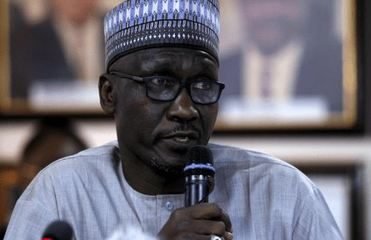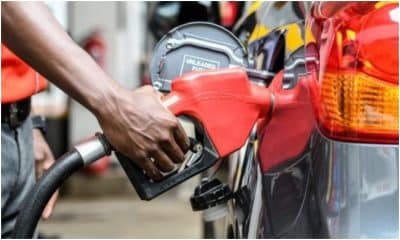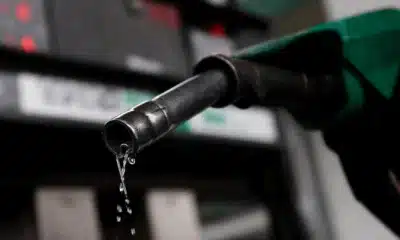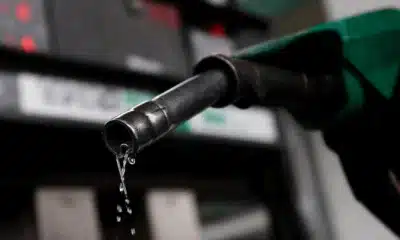Nigeria News
History Of Petrol Price Increment In Nigeria

The narrative of petrol price adjustments in Nigeria is a compelling story marked by economic policy shifts, global oil market dynamics, and critical political decisions.
The journey from the era dominated by the Peoples Democratic Party (PDP) to the current administration under the All Progressives Congress (APC) has significantly reshaped the petrol pricing landscape, with profound implications for the nation’s economy and the daily lives of its citizens.
Over the years, the fluctuating price of petrol has had a domino effect on various sectors, notably the transportation industry.
The hike in petrol prices has led to a corresponding increase in transportation costs, forcing many Nigerians to seek alternative means of commuting.
This shift has not only impacted travel and logistics but has also contributed to a broader economic strain felt across the country.
The repercussions of petrol price adjustments extend beyond transportation to affect the cost of commodities.
As petrol prices climb, so too does the price of goods and services, given the integral role of fuel in the transportation and delivery of products.
This inflationary pressure has ushered in a period of hardship and suffering for a significant portion of the Nigerian populace, particularly those already struggling to make ends meet.
When Nigerians felt the era of increasing the price of petrol was over, President Bola Tinubu, on the 29th of May, 2023, announced the removal of subsidy, an announcement which saw the price of petrol skyrocket.
Ever since President Tinubu announced the removal of subsidy, petrol currently sells in Nigeria around N615/litre to N650/litre
Here is a detailed history of the major shifts in petrol prices in Nigeria over the years:
Pre-Subsidy Era
1970s-1980s: In the early years following Nigeria’s independence in 1960, the price of petrol was relatively stable, thanks to the country’s burgeoning oil sector. However, the global oil crises of the 1970s began to exert pressure on domestic fuel prices.
Introduction of Subsidy and Price Adjustments
1980s: The Nigerian government introduced fuel subsidies to cushion the economy and citizens from the volatility of the global oil market. This move kept petrol prices artificially low but began to strain government finances.
1986: Following a drop in oil prices and economic challenges, the military regime of General Ibrahim Babangida initiated the Structural Adjustment Program (SAP), which led to the first significant fuel subsidy removal, causing petrol prices to jump from 20 kobo to 39.5 kobo per liter.
Era of Frequent Adjustments
1990s-2000s: Nigeria saw frequent changes in petrol prices, often resulting from the removal, partial removal, or reinstatement of subsidies. For example, under General Sani Abacha in the 1990s, prices increased several times, reaching N11 per liter by the time of his death in 1998.
The 2000s: President Olusegun Obasanjo’s tenure witnessed several fuel price hikes, notably in 2003 and 2004, when prices went from about N26 to N70 per litre amid protests and strikes by labour unions.
Recent Years and Deregulation Efforts
2012: Under President Goodluck Jonathan, the government attempted a complete removal of fuel subsidies on January 1, 2012, causing the petrol price to soar from N65 to N141 per liter overnight. This led to massive protests, and the government partially reinstated the subsidy, settling the price at N97 per liter.
2016: President Muhammadu Buhari’s administration announced a new petrol price band of N135 to N145 per liter in May 2016, citing the need to eliminate subsidies and free up funds for other sectors.
2020-202: Amid the COVID-19 pandemic and falling global oil prices, the government again adjusted fuel prices, moving towards a deregulated market where prices are determined by market forces. Petrol prices fluctuated, reaching upwards of N160 per liter.
2023-2024: President Bola Tinubu’s era saw subsidies removed and the price of petrol increased to N615/litre.








